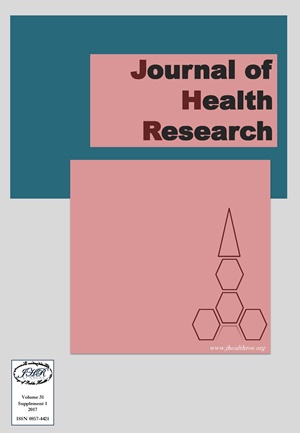Effect of Sleep Quality on Blood Pressure and Heart Rate among Shift Nurses in a Public Hospital in Bangkok, Thailand
Keywords:
Sleep quality, Shift nurse, Blood pressure, Heart rate, ThailandAbstract
Background: A shift work has often associated with poor sleep quality which is a risk factor of cardiovascular disease. This study investigated whether sleep quality is associated with vital signs among shift nurses in a public hospital.
Method: A cross-sectional survey of 270 shift nurses in a public hospital in Bangkok, Thailand, was conducted using self-report questionnaire. Sleep quality was measured using the Pittsburgh Sleep Quality Index (PSQI). The vital signs; blood pressure and heart rate was measured form nurses followed by WHO recommended procedure. Chi-square tests and multivariate linear regression models were performed to find significant associations.
Results: Among 270 shift nurses, 100 (37%) of them were classified as poor sleep quality (PSQI > 10). The results indicated that sleep quality was not associated with systolic blood pressure (p=0.87), diastolic blood pressure (p=0.17), heart rate (p=0.58). After adjustment for age, gender, BMI, exercise, caffeine consumption and alcohol consumption, an increased one score of PSQI was tented to increase 0.33 mmHg of systolic blood pressure (β = 0.33, p-value = 0.30), however, statistical significant was not achieved. It could be suggested that poor sleep quality was associated with an increasing of systolic blood pressure.
Conclusions: More than half of shift nurses reported poor sleep quality, however, there was no association with blood pressure and heart rate. An appropriate intervention strategy to improve sleep quality among shift nurses are needed in public hospitals.







